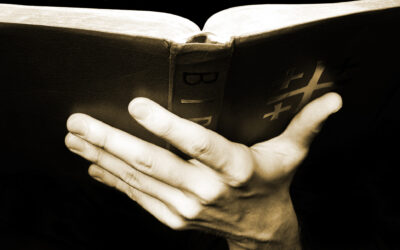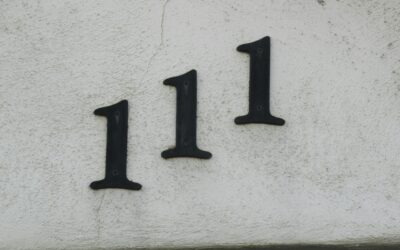Not every Christian is Episcopal but every Episcopal is a Christian. That’s because Episcoplianism is a denomination of Christianity. The word Christian loosely translates to “Christ-like” and it was originally used as a nickname to refer to the disciples of Christ in the early Church. As such, Christin is often used to refer to the historical branches of Christian denominations which are Catholic and Orthodox churches.
Episcopalians are part of the Anglican Communion, which is the third largest Christian communion (after the Catholic and Orthodox communions respectively). As such, the Episcopal doctrine is somewhat similar to the Anglican doctrine.
Differences between Episcopalians and Christians
The main differences between Episcopalians and Christians have to do with church governance and the authority of the Bible. Unlike Catholics and Orthodox Christians, Episcopalians believe in the authority of the Bible and do not believe in the role of the papacy. They also differ in doctrinal issues as well as liturgy.
Let’s have a closer look at these differences.
Church governance
Episcopalian
The Episcopal church system may be hierarchical but it has checks and balances aimed at ensuring no individual or group wields absolute power. At the top of the hierarchy is the General Convention which sits every three years. The convention comprises representatives from the different dioceses in the country. They elect a presiding Bishop who then becomes the head of the church. The presiding Bishop governs with the help of an executive council that is made of laypeople, priests, and bishops.
Churches are clustered into dioceses and each dioceses is headed by a Bishop with the help of a diocesan convention. The diocesan convention makes decisions on all matters that pertain to the churches in the diocese. Additionally, the episcopalian structure also has several standing committees drawn from the different dioceses. These committees advise the general assembly on church administration and doctrine issues. These committees include the Committee on Doctrine, the Committee on Social Justice, and the Committee on Worship.
Christian governance
The Catholics (loosely referred to as Christians) are governed by the Pope who is believed to be the successor to Saint Peter. As such, the Pope is considered to be the divine leader of the Christian church. The Pope is helped by a college of 120 Cardinals, who are appointed by the Pope. These cardinals also elect a new pope when the current one dies or resigns.
The catholic churches are grouped into dioceses which are led by Bishops. These Bishops are in charge of the spiritual and administrative leadership of their respective diocese. Catholics also have several religious orders which are a group of believers that have taken vows of obedience, chastity, and poverty. These orders are in charge of several ministries like education, social work, and healthcare.
The hierarchical structure o the catholic church recognizes the Pope as the overall leader with the laity as ordinary members of the congregation at the bottom of the structure. Catholics do not believe in the priesthood of all believers which means the laity do not participate in church leadership.
Theological perspectives
Catholics believe that the Pope is the divine leader who can influence the doctrine of the church. Because the Pope is the direct successor of Saint Peter, he is believed to have the divine authority to make pronouncements on church doctrine. Episcopalians do not believe in the pope and neither do they recognize any of their church leaders as having the authority to determine doctrine. They believe that doctrine can only be influenced by the Bible which is the inspired word of God.
Episcopalians believe that the Bible is the infallible word of God. They believe that each Christian must develop a personal relationship with God that stems from personal devotion and study. Every Christian can rely on the Holy Spirit, church history/tradition, and experience to interpret the scriptures. Catholics also emphasize personal devotion but the difference is that Catholics have to go through the priest e.g. for confession. They also have to rely on the pope and clergy for interpretation of the scriptures.
Liturgy is another important difference. Episcopalian liturgy is informed by the Book of Common Prayer which is also used by Anglicans. Episcopalian liturgy is however flexible and they allow for contemporary language and inclusive prayers. The catholic liturgy, on the other hand, is guided by a missal. The liturgy is strict and rigid to give uniformity of worship across all churches. Catholic mass can be celebrated in various forms, including the Tridentine Mass in Latin and the Novus Ordo Mass in the vernacular language.
The sacraments are another important difference between Episcopalians and Christians. Catholics believe in seven sacraments (baptism, confirmation, Eucharist, penance, anointing of the sick, marriage, and holy orders). On the flip side, episcopalians only believe in two sacraments – baptism and Eucharist.
How the sacraments are viewed also differs. Catholics believe the sacraments are a means to God’s grace while Episcopalians only view them as symbols of God’s grace. When administering the Eucharist, Catholics expect the bread and wine to be transformed into the body and blood of Christ. This doctrine is referred to as transubstantiation. Episcopalians believe that the bread and wine represent the body and blood of Christ but they do not believe in the doctrine of transubstantiation.
Conclusion
Episcopalians share a lot of similarities with Catholics and the orthodox church. For instance, they agree on the virgin birth, the divinity of Christ, and salvation by faith in Jesus. However, they are still a protestant denomination (an offshoot of the Anglican church), and are therefore distinctly different in doctrine, leadership style, as well as liturgy. The most notable difference is on the role of the papacy as well as the observance of only two sacraments, unlike the Catholics who observe seven.





